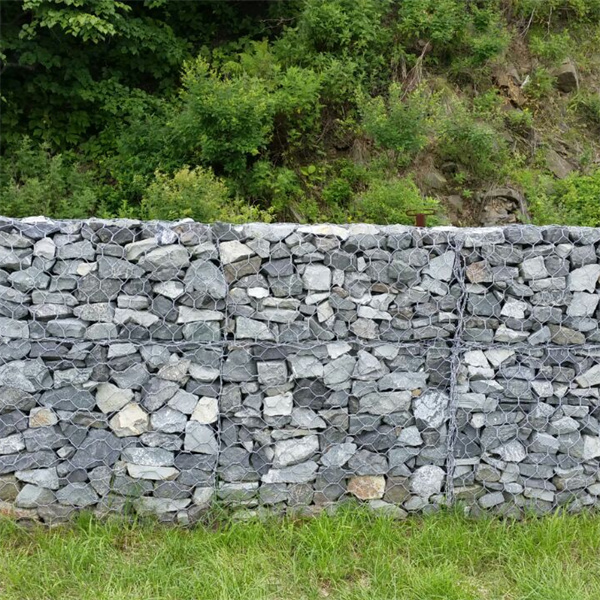Aug . 17, 2024 15:46 Back to list
Optimal Construction of Welded Gabion Walls for Durability and Aesthetic Appeal
Best Welded Gabion Walls An Overview
Gabion walls have gained immense popularity in construction and landscaping for their versatility, durability, and aesthetic appeal. Among the various types of gabion systems available, welded gabion walls stand out for their superior strength and ease of installation. This article explores the features, benefits, and applications of welded gabion walls, highlighting why they are considered the best option for a variety of projects.
Understanding Welded Gabion Walls
Welded gabion walls consist of wire mesh boxes, typically made of galvanized steel or coated with PVC to resist corrosion. These boxes are filled with rocks, stones, or other materials to create a strong, stable structure. The welded wire design ensures that the panels remain rigid and maintain their shape under pressure, making them ideal for applications where structural integrity is paramount.
Advantages of Welded Gabion Walls
1. Strength and Durability One of the primary advantages of welded gabion walls is their strength. The welded wire construction provides enhanced resistance to forces such as wind, water, and erosion. This makes them suitable for use in high-stress environments, such as riverbanks, steep slopes, and coastal areas.
2. Ease of Installation Welded gabion walls are relatively easy to install compared to other retaining wall systems. The pre-fabricated panels can be quickly assembled on-site, significantly reducing construction time. This efficiency not only saves labor costs but also minimizes disruptions during the installation process.
3. Environmental Benefits Gabion walls promote ecological balance by allowing for natural drainage and reducing runoff. The use of natural stone or recycled materials for filling the gabions contributes to sustainability, while the porous structure supports vegetation growth, aiding in erosion control and biodiversity.
4. Aesthetic Appeal Depending on the choice of materials for filling, welded gabion walls can blend seamlessly into various landscapes. Whether filled with smooth river stones or rustic boulders, these walls can enhance the visual appeal of gardens, parks, and commercial properties. They can also be custom-designed to fit specific architectural themes.
best welded gabion wall

5. Cost-Effectiveness In many cases, welded gabion walls provide a more cost-effective solution than traditional masonry walls or concrete structures. The materials used for the wall are often less expensive, and the decreased labor time results in overall savings for construction projects.
Applications of Welded Gabion Walls
Welded gabion walls are versatile and can be employed in a myriad of applications. They are commonly used for
- Retaining Structures To stabilize slopes and prevent soil erosion, making them ideal for hillside development. - Riverbank Protection To manage water flow and protect banks from erosion during floods or heavy rain.
- Noise Barriers In urban areas, gabion walls can act as effective noise barriers, enhancing the quality of life for nearby residents.
- Decorative Elements For landscaping and garden design, gabion walls can be integrated into seating areas, planters, and artistic features.
- Flood Control Used strategically to manage floodwaters and prevent damage to infrastructure.
Conclusion
Welded gabion walls represent a practical and robust solution for a diverse range of construction and landscaping needs. Their myriad advantages, from strength and ease of installation to environmental benefits and aesthetic appeal, make them the best choice for many projects. Whether for functional or decorative purposes, welded gabion walls continue to be an optimal choice for builders, landscapers, and property owners alike. As the demand for sustainable and durable building materials grows, welded gabions are poised to remain at the forefront of modern construction practices.
-
Why PVC Coated Gabion Mattress Is the Best Solution for Long-Term Erosion Control
NewsMay.23,2025
-
Gabion Wire Mesh: The Reinforced Solution for Modern Construction and Landscape Design
NewsMay.23,2025
-
Gabion Wall: The Flexible, Seismic-Resistant Solution for Modern Landscaping and Construction
NewsMay.23,2025
-
Gabion Wall Solutions: The Durable, Decorative, and Affordable Choice for Every Landscape
NewsMay.23,2025
-
Gabion Basket: The Durable and Flexible Alternative to Traditional Retaining Walls
NewsMay.23,2025
-
Gabion Basket: The Proven Solution for Slope Stability and Flood Control
NewsMay.23,2025
-
Versatility of Chain Link Fence Gabion
NewsMay.13,2025






